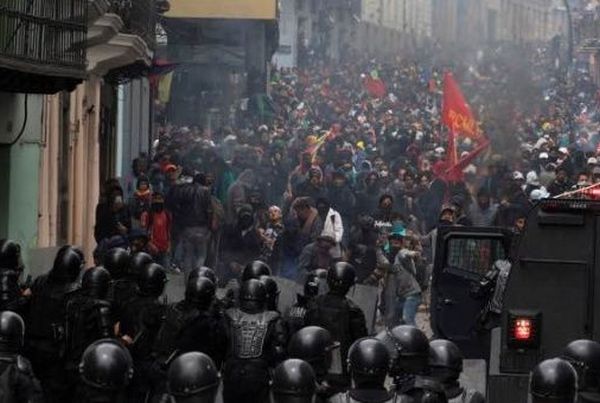
Protests over fuel subsidy cuts paralyzed transportation in major Ecuadorean cities again, a day after unrest in which 275 people were arrested and 28 police officers were injured.
Witnesses said bus and taxi services remained on strike on Friday after fuel prices soared on Thursday following President Lenin Moreno’s fiscal measures earlier in the week.
On Thursday, masked protesters hurled stones and battled police in the capital, Quito, doing extensive damage in the worst unrest in the oil-producing nation of 17 million people in years.
Moreno — putting Ecuador on a more market-friendly track after years of leftist rule and aligning policies to conform with a $4.2-billion International Monetary Fund (IMF) loan — has scrapped decades-old fuel subsidies and announced tax reforms. That has infuriated transport unions, whose action has been joined by indigenous groups, students, and other unions.
By late Thursday, 275 people had been arrested and 28 police officers hurt, the Interior Ministry said. As the government declared a state of emergency on Thursday, police deployed armored vehicles and used tear gas to beat back demonstrators and keep them from reaching the presidential palace.
Diesel prices rose from $1.03 to $2.30 per gallon on Thursday, while gasoline rose from $1.85 to $2.39.
Ecuador has a long history of political instability. Street protests toppled three presidents during economic turmoil in the decade before Moreno’s predecessor, Rafael Correa, took power in 2007.
 Escambray ENGLISH EDITION
Escambray ENGLISH EDITION





Escambray reserves the right to publish comments.